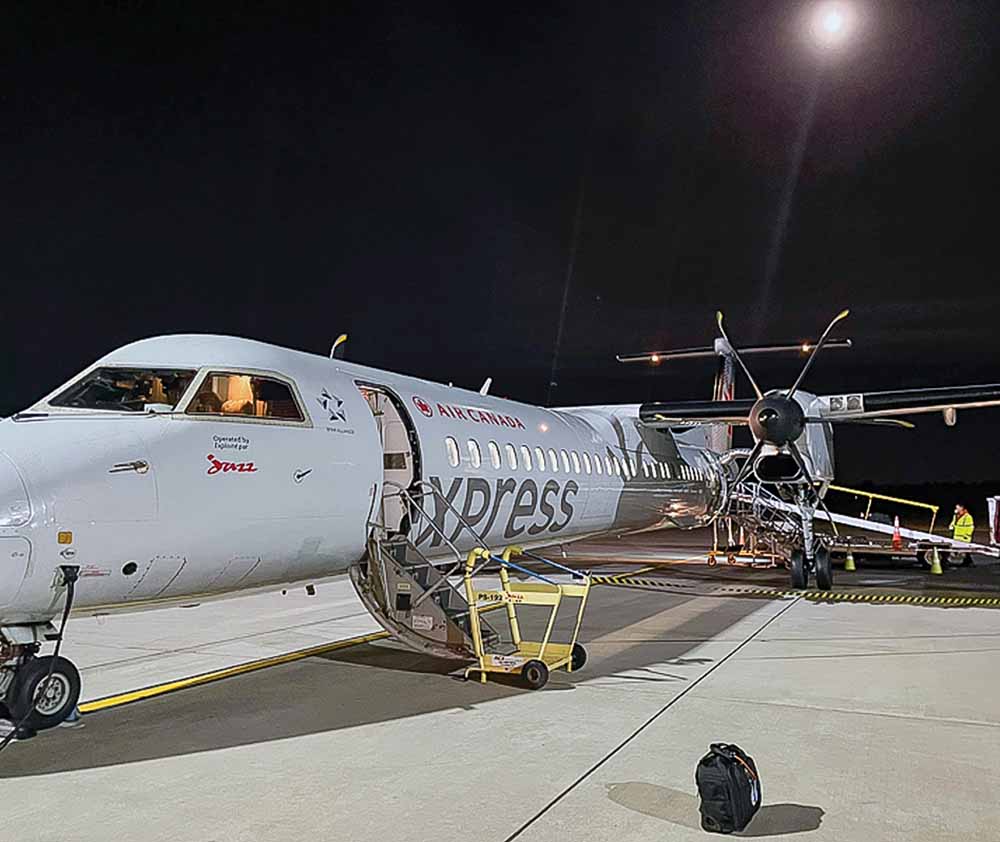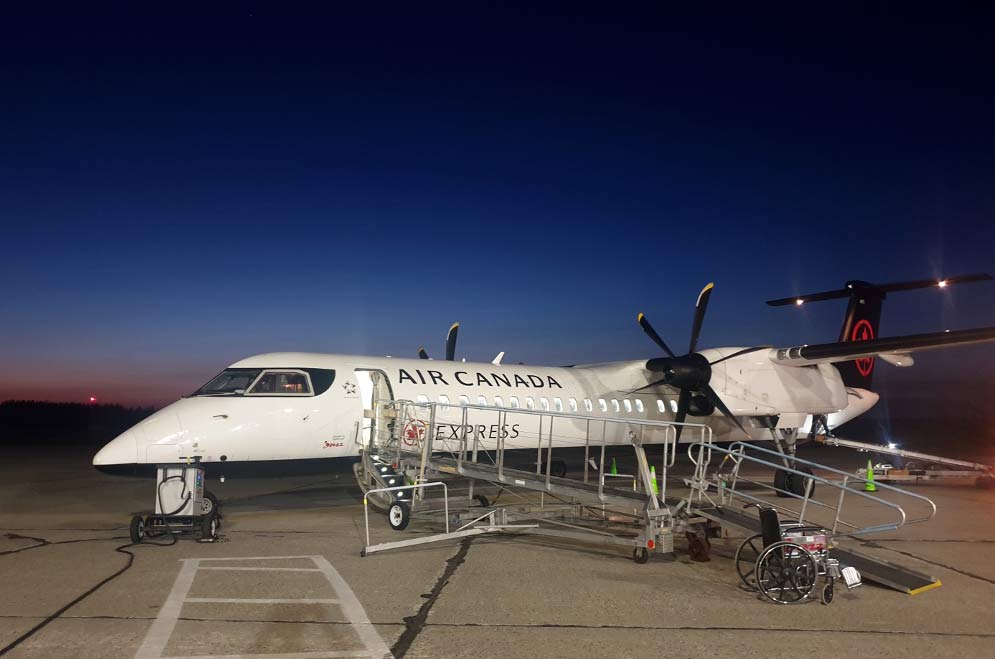Jazz Aviation

A morning walk-around of a Jazz E175 at Lester B. Pearson International Airport. Photo: Capt. Peter Duncan (Jazz Aviation)
At A Glance
Pilots joined ALPA: 1997
Contract status update: The pilots ratified Memorandum of Settlement No. 7 on Aug. 28, 2023. The collective agreement is in place until 2035.
Committee updates: The MEC has 18 standing committees to support Jazz pilots. Committee volunteers include subject-matter experts in the areas of benefits, safety, grievance, negotiations, training, and scheduling.
Number of pilots/flightcrew members: 1,300
Pilot bases: Toronto, Ont.; Montréal, Qué.; Calgary Alb.; and Vancouver, B.C.
Key markets: Transborder and regional markets
Headquarters: Halifax, N.S.
Operations: Jazz serves 42 destinations in Canada and 26 in the U.S.
Fleet: CRJ900s, E175s, and Dash 8-400s
At the start of 2023, pilot wages were the Jazz Aviation Master Executive Council’s (MEC) greatest concern as pilot compensation failed to remain competitive in the Canadian labour market and continued to fall significantly behind those of American counterparts. Additionally, Air Canada’s blatant violations of negotiated agreements proved to be an ongoing challenge.
As negotiations with management proceeded throughout the year, a shortage of pilots continued to be the pilot group’s greatest leverage in making gains. In August, the pilots’ Negotiating Committee eventually reached an agreement, Memorandum of Settlement No. 7. Although the committee was able to achieve sizeable gains, those gains fall short in attracting enough experienced pilots to maintain or increase Jazz’s flying and to stop the attrition of current Jazz pilots to carriers outside the Air Canada system.
Regarding the future, Capt. Claude Buraglia, the pilot group’s MEC chair, commented, “With Air Canada pilots merging with ALPA in May, it’s provided more opportunity for collaboration between the two pilot groups. I believe this relationship can unlock the greatest potential not only for both pilot groups, but also for the companies.”


